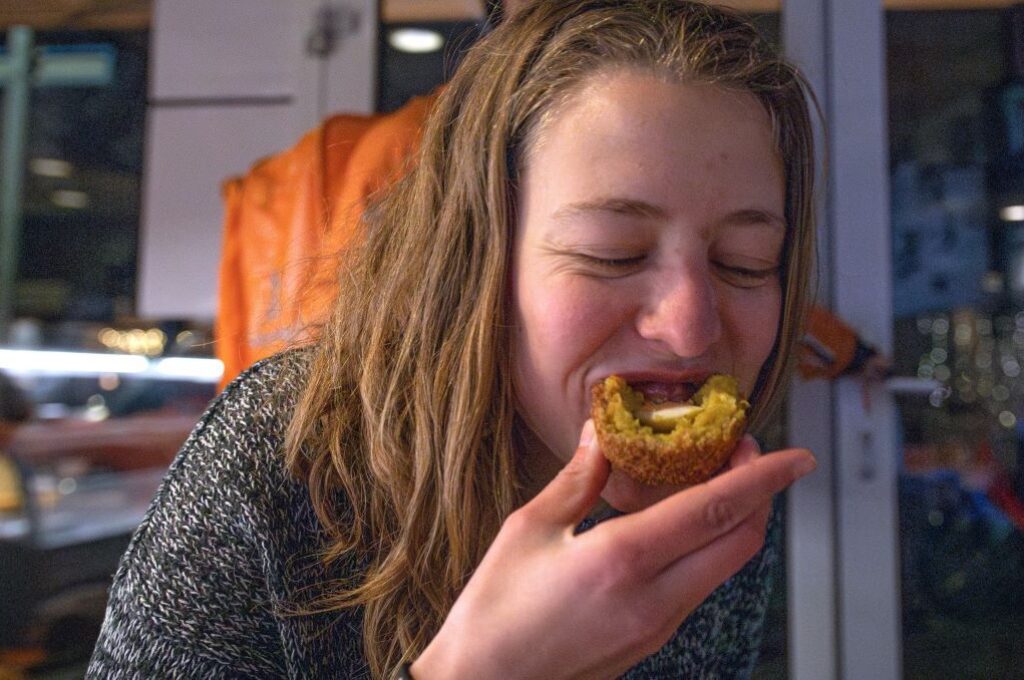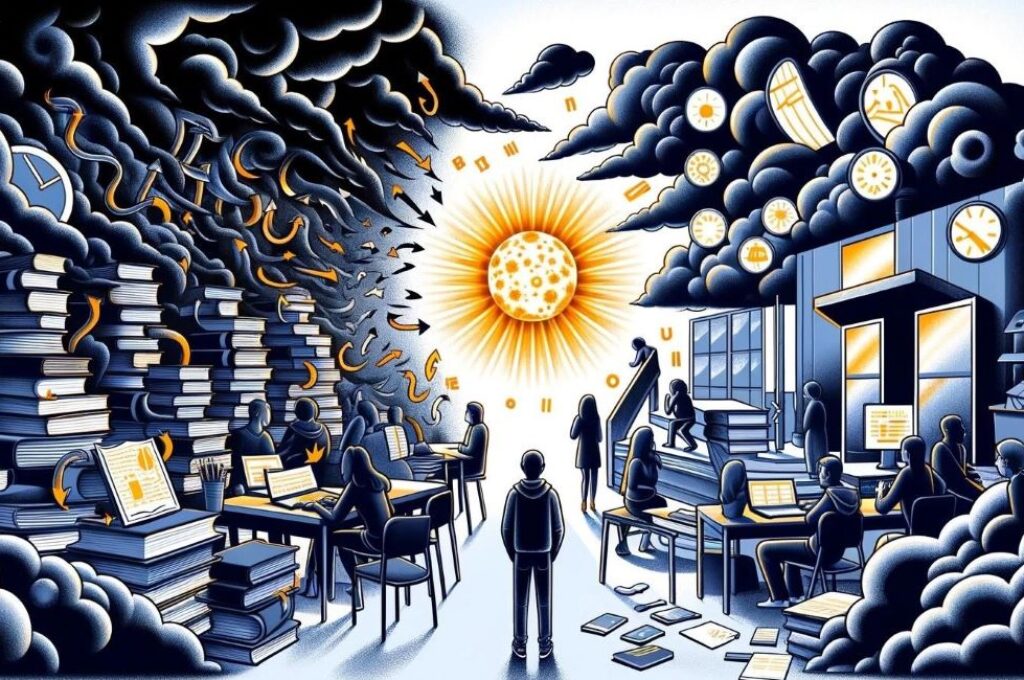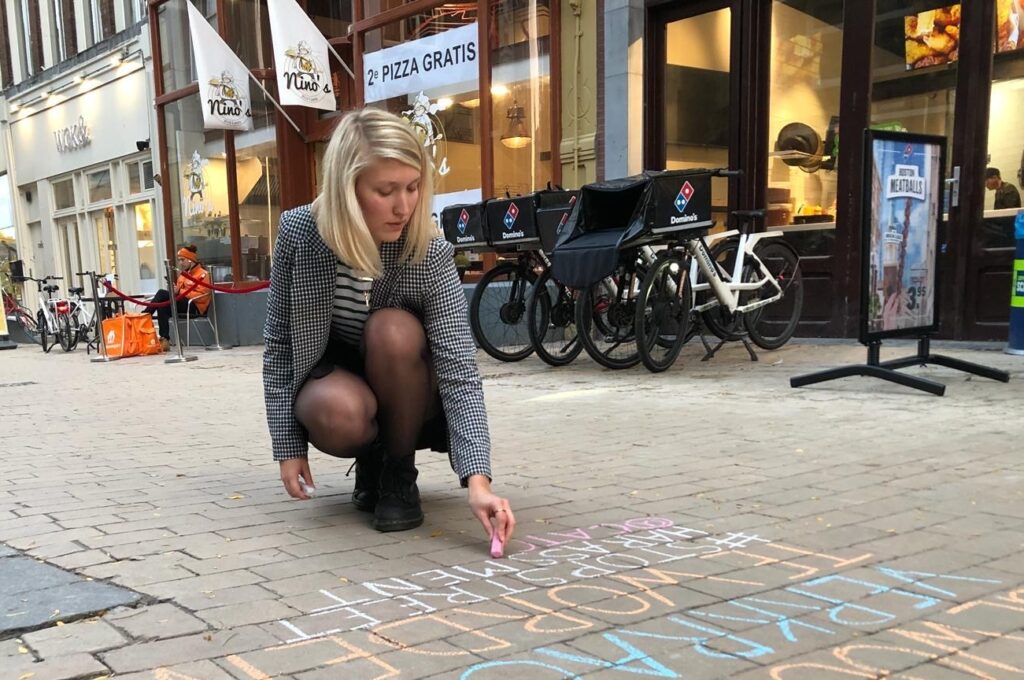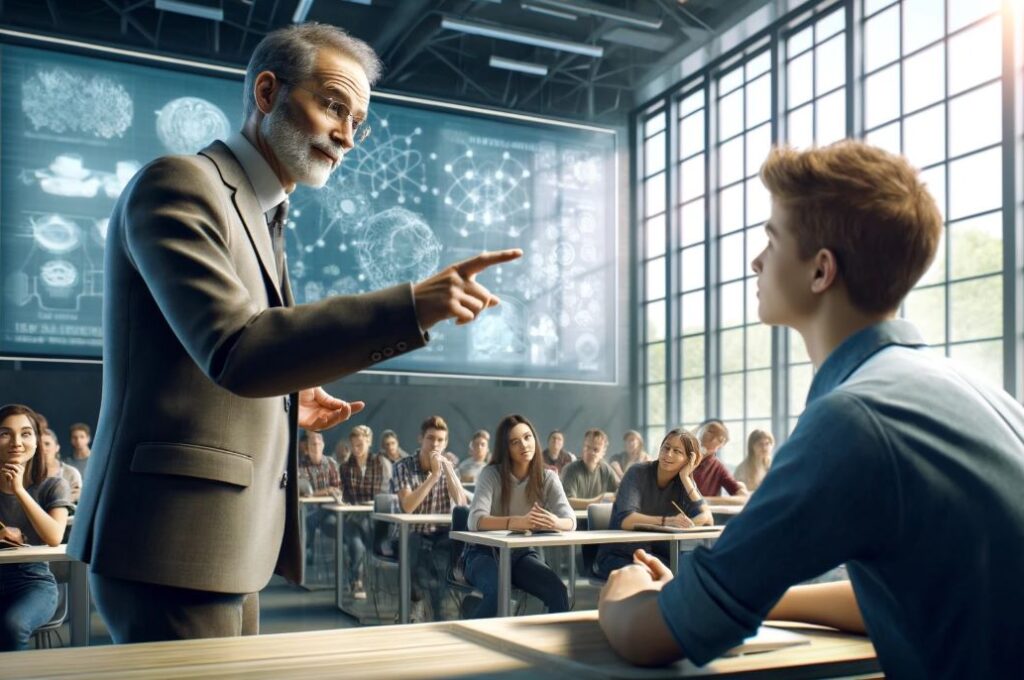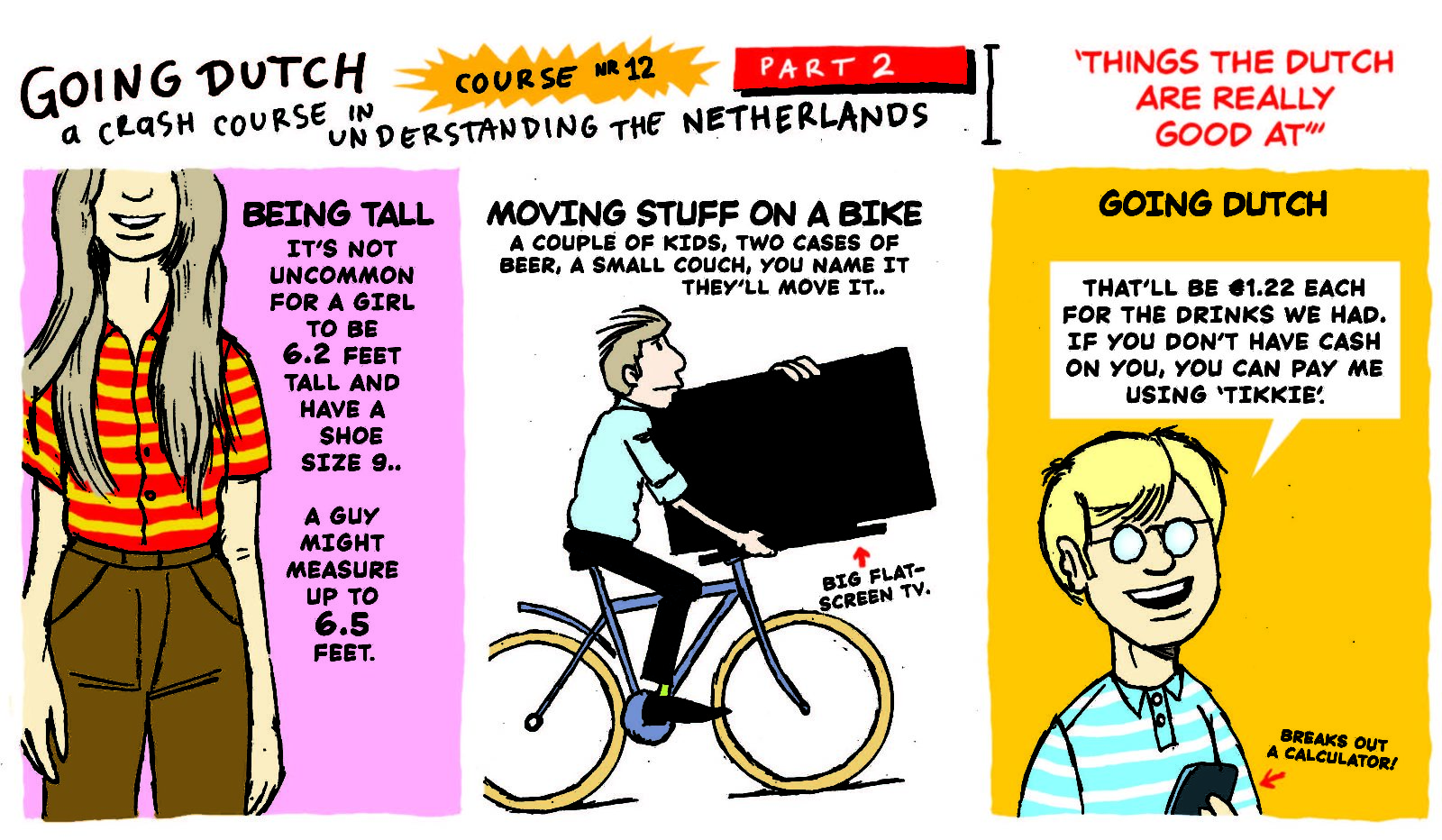‘The international element is what really drives me and keeps me engaged.’ Ohioan Emily Lewis teaches English and International Business Law at the International Business School (IBS).
How did you become a teacher at Hanze University?
‘I first came to Groningen as an exchange student when I was studying law. I then decided to move to Groningen for romantic reasons. I didn’t speak Dutch at the time, so I first continued my education and got a master’s degree in International Law at the University of Groningen. After this, I had to find a job in the north of the Netherlands due to my residence permit that only allowed me to live in Groningen. There obviously weren’t many positions related to international law here, so I chose to get my teaching degree. That was a very good fit, I enjoyed it from the beginning.
Here, students are treated like adults, they are allowed to make their own choices
Later, when I was teaching English at a secondary school in Groningen, I saw several vacancies for law instructors. I didn’t apply because I didn’t consider myself to be a law instructor. At some point, I just decided to send in an open application. Two years later, I was asked to teach English teacher at IBS and I’ve been working at Hanze since.’
What are the biggest differences between US and Dutch education?
‘The main difference is definitely the freedom of students. Here, students are treated like adults, they are allowed to make their own choices. There is a lower pressure on students to perform than in the US, although that is changing. The expectations we have of students have increased and there are fewer resit opportunities.’
What do you like most about being a teacher?
‘I generally love sharing the knowledge I have gathered. I studied for many years myself, so I feel obliged to share what I’ve learned. At Hanze, the international element is what really drives me and keeps me engaged. We have created our own culture at IBS, which is constantly changing as different students come and go.
I try to make the information as accessible as possible
There is plenty of room for people to be different, to really be themselves. But we also have high expectations of our students. That really suits my personality, as I have strong academic standards. The merging of the curricula of International Business Management and International Business & Languages brings forth new opportunities to place business in a broader perspective. I am excited to see more opportunities to incorporate the liberal arts approach into my courses. That approach suits me very well, I can tell, because my first degree was in history.’
If you could change one thing in Dutch higher education, what would that be?
‘There are many different parties involved in Dutch higher education and each party has different expectations. Sometimes these expectations clash. It would be better if these expectations could be aligned more.’
What defines you as a teacher?
‘I try to make the information as accessible as possible. This is especially important when it comes to law, where you often have to work with complex texts. I try to find creative ways to make the information stick. For example, in class today I had to introduce the concept of international treaties. I did this with a clip of a professor singing a song about a particular convention (an agreement international law, ed.). This made the students laugh. Hopefully something from that little song will stick with them. It is important for teachers to be a little playful. When students enjoy a class, they learn so much more. I also always have a multidisciplinary approach and show how things are linked by explaining how students can expect law to come back in the other courses in their curriculum.’
How would you describe your teaching methods?
‘I try not to lecture too much, so I give workshops where students have to be active. Sometimes this is painful for them. It is much easier to just sit and listen to someone than to work on an exercise, make an argument, or present a case. But again, I think they learn so much more that way. It is a slower process, in a regular lecture of two hours, you can get through a lot more material.
Students that come in at IBS are sometimes very young and not sure of what they want and what they want to learn
But what remains with students in the end is a lot less than when you take an interactive approach. And I don’t like slides. Over the years I learned that the best moments take place when you deviate from the plan. I’m a bit of a perfectionist, so when I first started teaching I had lesson plans of up to four pages long, it was insanity. I know now that it is important to allow room for unexpected things.’
What do you think of Hanze University of Applied Sciences?
‘You can’t fail to notice the practical orientation. As I studied at the University of Groningen, I can see the differences. The Hanze is definitely more practical, you often see that businesses and organizations are pulled in. There is a clearer connection to society than at research universities, the impact that research and education at applied universities have in the real world is more visible. The Hanze is a really large institute, but because of the separate schools and the way the classes are organized, it never feels like a huge university. I really like that.’
What could be improved?
‘The campus is a bit of a missed opportunity. There is a lot of space available. Yet when I look at how the buildings have been laid out and the facilities that are available, I think a lot more could be done. For instance, by incorporating student activities and creating room for student start-up businesses. The space could be used much more strategically. Some parts of the campus are also not very pedestrian friendly, some sidewalks abruptly end. This could also be improved. There is a lot of construction work going on right now, so it’s work in progress. I am curious to see how it turns out.’
What would your ideal university of applied sciences look like?
‘It all starts with inquisitive students that aren’t afraid to ask questions. Students that come in at IBS are sometimes very young and not sure of what they want and what they want to learn. If every student was eager to learn and curious about the world around them, that would be great. Furthermore, being a teacher can be quite a stressful job at times. There are these peak moments where things collide. That can take just a couple of days or a week, but it can exhaust you so much that it affects you for the following month. The good thing about working in higher education is that you have many different things to do, different moments in the school year in which we focus on different things. The disadvantage is that this leads to these peak moments. I’d like something in between, not the same old, same old every day, but also fewer of these peaks.’

